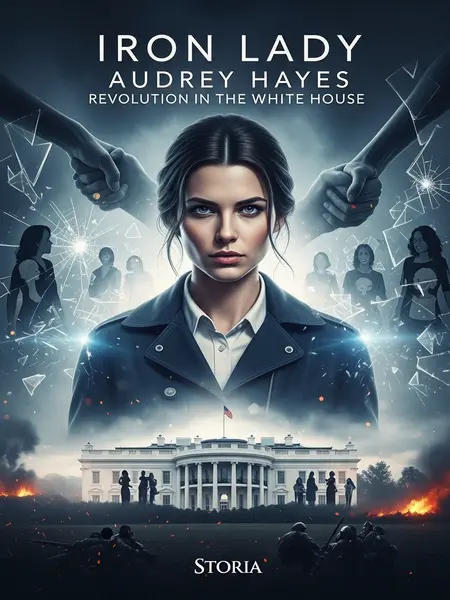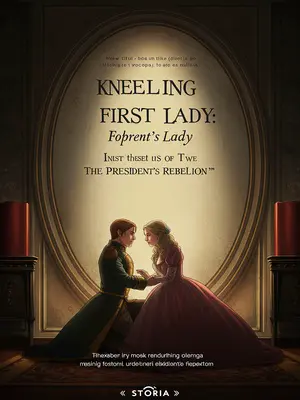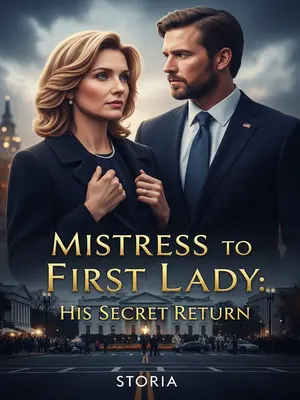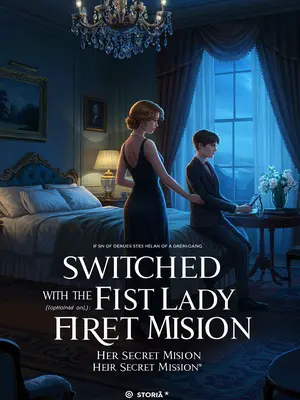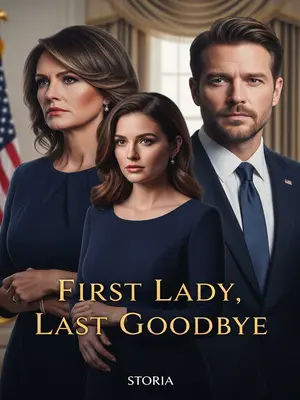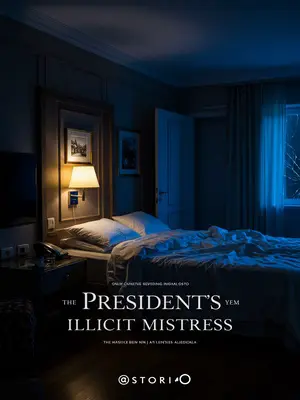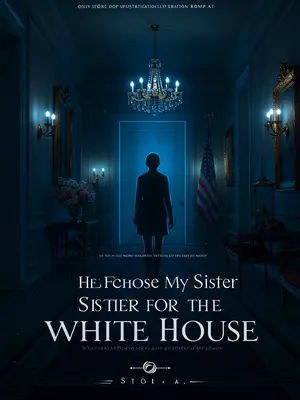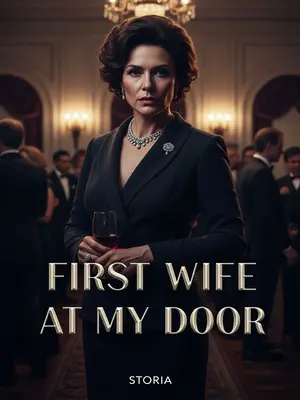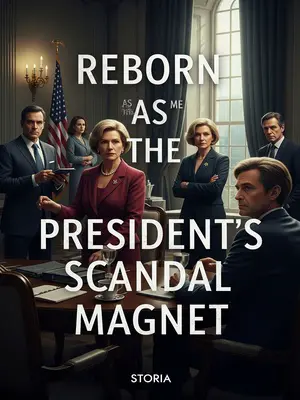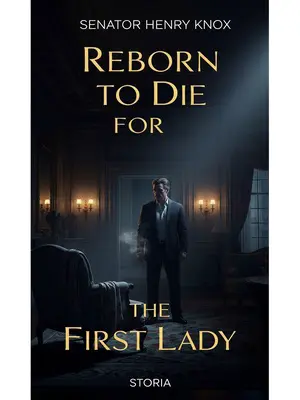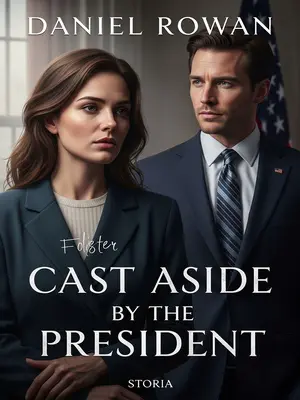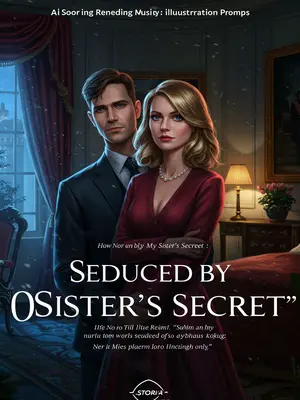Chapter 1: Blood in the Oval Office
I am a woman who spent her life in the saddle, collecting medals and earning my stripes on the battlefield. Yet, in the end, I was forced to marry beneath my rank, becoming just another name in the President’s inner circle—his so-called cabinet. You locked me away deep inside the White House, expecting me to be grateful for the President’s constant attention and the trappings of power. But you should have known from the start—I’m not a caged songbird, and I sure as hell am not an eagle you can keep in a gilded cage. You tried to break me. So I’ll topple your dynasty. I’ll be the one on top.
I can still taste the sweat and gunpowder from the front lines, the dull ache in my bones from endless days on horseback. I never forgot what it meant to command men, to be the one they’d follow straight into hell. Now, trapped in this marble prison, I feel the walls pressing in on me. But I’ve never been one to go quietly. You want gratitude? You’ll get a revolution.
Draped in a sharply tailored navy suit, with the bloodied tip of my Liberty Saber pressed against Henry Callahan’s throat, I watched his face contort in disbelief. Victoria, dressed in the understated elegance expected of a First Lady, stood quietly by my side, her scholarly poise giving a strange dignity to the blood-soaked Oval Office. All around us, the President’s cabinet—flanked by their spouses and children, their briefcases and duffel bags stacked at their knees—knelt with heads bowed, forming a tableau that looked like something out of an American history painting, tinged with bitter irony and the hush of a coup.
The metallic tang of blood hung thick in the air, mingling with the smell of strong coffee, polished mahogany, and the faint must of old books. The Oval Office—once a symbol of order and power—now looked like the aftermath of a famous painting, maybe something out of "Washington Crossing the Delaware" or a modern war photograph: elegant chaos, history in the making. The silence was broken only by the soft whimpers of children and the distant wail of sirens echoing through Pennsylvania Avenue.
The bodies on the floor belonged to loyalists of the Callahan Administration. They’d served the Callahan family with unwavering devotion and followed that dying dynasty straight into the grave. Loyalty—I can respect that. So they left with dignity; Victoria’s staff came out and draped their bodies in black cloth, a somber procession beneath the watchful gaze of history.
A sharp pang twisted in my chest—respect, maybe, for those who stayed true to their cause. Even in defeat, there’s a kind of honor in loyalty. Victoria’s people moved with quiet efficiency, showing more mercy in ten minutes than the Callahans ever did in ten years.
Henry Callahan’s eyes were bloodshot as he was forced to his knees, bellowing in rage: “How could it end like this?”
His voice bounced off the marble and the bulletproof glass, echoing with the desperation of a man who thought he was untouchable. All the power was gone from his words, replaced by a raw, crumbling disbelief.
“Audrey, Audrey, it’s me—your Henry. You still holding a grudge against me?” His voice faded to low, broken sobs.
He looked truly desperate, his brows and eyes drooping, so fragile he seemed more like a jilted lover than I ever did. But honestly, I didn’t understand him at all.
For a moment, I almost pitied him—almost. The man who once ruled from behind the Resolute Desk now looked smaller than any foot soldier I’d ever led into battle.
I pinched his face between my fingers, studying him closely. His blue eyes brimmed with tears, humiliation and resignation etched across his features. I looked deep into his eyes, searching for any sign of a trick or some spell that might have bewitched me—anything to explain how, in that old dream, I’d willingly become his clinging vine, left at his mercy.
His skin was clammy beneath my fingertips, his pulse racing with fear. I searched those eyes, but found only emptiness—no magic, no trickery, just a man hollowed out by his own weakness.
For three years I fought on the front lines, led my troops through the Midwest, and was the de facto Warlord of the Plains. How could I, as if struck by madness, become nothing more than a mistress to the President, thank him for his attention, fight his wars, and then finally die old and forgotten in the shadows of the White House?
It was a betrayal of everything I was raised to be. My mother would have spat at the thought; my father would have hung his head in shame. I clenched my jaw, refusing to let my legacy end in chains.
Finding nothing in him, I simply and decisively slit his throat. Blood spurted from his pale neck, a few drops splashing into the corner of my eye, painting a streak of red. I glanced at my Liberty Saber, satisfied with its work.
The blade felt heavy in my hand, but my heart was lighter. Justice—cold and final as the steel itself. I wiped the blood from my cheek with the back of my hand, leaving a crimson streak across my jawline. My hands trembled just a little, and I drew a shaky breath, letting the relief wash over me.
With so many unpredictable threats, it’s better to kill and secure peace of mind. What must be known will come to light one day.
In the end, only certainty matters. I’d learned that lesson too many times on the battlefield—hesitation gets you killed. I watched the last of his life fade away, and felt nothing but relief and a strange, hollow calm.
Victoria helped me ascend the white marble stairs, step by step, and seated me behind the Resolute Desk. The officials below, after exchanging glances, all sensibly chanted, “Long live the President! Long live, long live, long live!”
Their voices rang out, shaky at first, then rising in unison—fear and hope blending in the echoes of a new era. I sat, the leather chair creaking beneath me, feeling the weight of a nation settle onto my shoulders.
From Warlord of the Plains to White House mistress, to now the most powerful leader controlling both D.C. and the Midwest, it was only natural that I claim the presidency. In D.C., apart from my loyal regiments and tanks in the Midwest, no one else could hold the line.
The irony wasn’t lost on me—how quickly fortunes turn in this city. I’d gone from pawn to queen in a single, bloody move.
